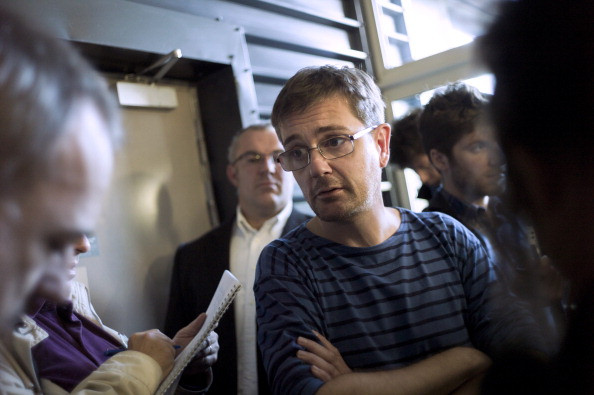Charlie Hebdo founder: Slain editor Charb 'dragged' team to their deaths

One of the founding members of the French satirical weekly Charlie Hebdo has blamed the magazine's slain editor for "dragging the team" to their deaths.
Henri Roussel, 80, attacked Charlie Hebdo's slain editor Patrick Charbonnier, also known as Charb, for increasingly using provocative cartoons without fearing the consequences on his team members.
Roussel contributed to the first issue of the magazine in 1970.
What made him feel the need to drag the team into overdoing it. He shouldn't have done it, but Charb did it again a year later, in September 2012.
Referring to Charb's decision to feature a Prophet Mohammed character on the magazine's cover in 2011, Roussel said in this week's French magazine Nouvel Obs: "What made him feel the need to drag the team into overdoing it. He shouldn't have done it, but Charb did it again a year later, in September 2012."
Charlie Hebdo magazine's offices were burned down on 2 November 2011 and its website was hacked following the Prophet Mohammed cover feature.
The magazine published nude caricatures of the Prophet Mohammed in 2012.
Roussel described Charb as an "amazing lad" but said he was a stubborn "blockhead", reported The Telegraph.
Roussel's comments did not go down well with Charlie Hebdo's lawyer of 22 years, Richard Malka, who wrote to the French magazine Nouvel Obs and Le Monde and said: "Charb has not yet even been buried and Obs finds nothing better to do that to publish a polemical and venomous piece on him.
"The other day, the editor of Nouvel Obs, Matthieu Croissandeau, couldn't shed enough tears to say he would continue the fight. I didn't know he meant it this way. I refuse to allow myself to be invaded by bad thoughts, but my disappointment is immense."
In response, Nouvel Obs' editor, Matthieu Croissandeau said: "We received this text and after a debate I decided to publish it in an edition on freedom of expression, it would have seemed to me worrisome to have censored his voice, even if it is discordant.
"Particularly as this is the voice of one of the pioneers of the gang."
© Copyright IBTimes 2025. All rights reserved.






















